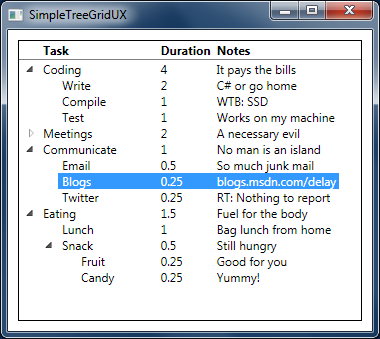Consider the following collection.
- True
- False
- False
- False
- True
- True
- False
- False
I want to display it in a structured way, say, in a TreeView. I want to be able to draw borders around entire groups and such.
- True Group
- True
- False Group
- False
- False
- False
- True Group
- True
- True
- False Group
- False
- False
How do I accomplish this with as little procedural code as possible?

